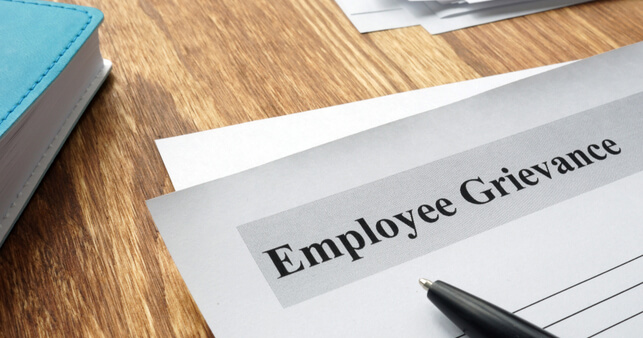
A personal grievance is a complaint made by an employee against an employer, and can be made against a current or previous employer.
What is a personal grievance in New Zealand?
Complaints classed as a personal grievance cover a number of topics including, but not limited to:
• an unjustifiable dismissal, where an employee feels there was no reason for their dismissal, or that the process followed by their employer was not fair or reasonable
• where the employee believes they have been subject to discrimination by their employer, relating particularly to the employee’s sex, marital status, religious belief, ethical belief, colour, race, ethnic or national origins, disability, age, political opinion, employment status, family status or sexual orientation
• sexual or racial harassment
• duress relating to membership of a union
• an employer failing to comply with their obligations under Part 6A of the Employment Relations Act 2000, relating to vulnerable workers such as cleaners or caterers
• an employer failing to follow a fair and reasonable process in respect of taking any action against an employee, such as changing the employee’s terms and condition, or making their role redundant
• pressuring an employee to perform an act in breach of the Health and Safety at Work Act 2015, or treating them negatively for their valid and lawful refusal to do so
• an employer retaliating against an employee who has made a protected disclosure of information
• an employer’s failure to protect a person’s employment while they are engaged in Reserve Forces training or service
What is the process of a personal grievance?
In the first instance, before an issue develops into a personal grievance, it should be discussed informally between you and your employee. If the issue remains unresolved, the employee may then consider progressing the matter. An employee must raise a personal grievance with their employer within 90 days of the grievance occurring, or them becoming aware of it. It is important to note that a personal grievance does not need to be raised in writing, so if an employee does come to you with concerns relating to their employment, you should ask that they put these in writing, outlining what their particular concerns are, and the outcome they are hoping to achieve.
The next step is for the matter to be discussed between you and your employee. This gives the parties a chance to resolve the matter prior to the need for any formal intervention, such as mediation, or the employee requesting that the Employment Relations Authority (ERA) investigate the complaint.
What if the grievance is raised after the 90-day period?
If an employee, or a former employee, raises a grievance after 90 days, there are some things to consider before you respond to it. The simplest response is when you agree with their ability to raise it, in which case you can respond and the process kicks in from there.
If you disagree with the employee raising the grievance, the employee may go to the ERA. For anything to eventuate from this, there needs to be exceptional circumstances such as:
• if the employee makes everything available for their representative to raise the grievance and the representative fails to do so on time; or
• health reasons restricting the employee from raising the complaint in time; or
• the employment agreement not explaining the options available to raise a grievance, including a failure to explain a 90-day time restriction; or
• if you fail to provide reasons for dismissal in writing after having been asked to do so.
ERA proceedings after raising a personal grievance
After a personal grievance has been raised, an employee has three years to start proceedings in the ERA. After the three years have passed, proceedings cannot be started without the ERA agreeing, which has proven to be very rare.
Managing a personal grievance after it has been raised with you is something with specific time limits, which can be confusing. For advice, contact Employsure on 0800 568 012.










